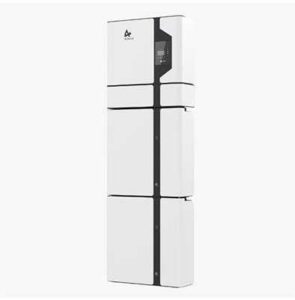
Increasingly popular choices for homes with solar panels, solar system batteries allow you to store and collect unused solar energy for later use. Ideal for nights or low-sunlight days, solar batteries minimise the necessity of buying power from the grid.
We’ve broken down the three main types of battery storage options to help you choose the best solar batteries for your home.
Lead Acid Battery
A tried-and-tested energy storage solution, lead-acid solar system batteries utilise the same technology as those used to start cars. Since they have been used for a longer period of time, lead-acid batteries are relatively affordable and benefit from established recycling and disposal services.
While they are an effective and affordable option, lead-acid batteries are bulkier and have lower efficiency compared to lithium-ion or flow batteries.
If you’re looking for off grid solar batteries, the reliability of lead-acid storage can be an ideal choice to provide power at night or for use as an emergency backup.
Lithium-Ion Battery
Lithium-ion batteries are the most common type of solar battery, particularly prevalent among hybrid residential setups. Featuring higher efficiency, lithium-ion batteries can be charged and discharged for several thousand cycles. On top of this, lithium-ion batteries have a deep depth of discharge (DoD) of between 80-90% of their total capacity and can operate across a wide range of ambient temperatures.
As a result of their durability and efficiency, lithium-ion solar batteries generally last for longer than ten years. A disadvantage of Li-ion is the price, as they are often more expensive than other solar storage options.
Flow Battery
Flow batteries are a relatively new addition to the energy storage space, offering one of the most promising alternatives to lithium-ion. Flow batteries utilise an electrolyte liquid that flows between two chambers in order to store and discharge electricity.
Flow batteries are able to be discharged to 100% of their total capacity, without residual discharge lowering the capacity or charge over time. Because of the optimised efficiency, flow batteries generally last longer than ten years.
Perfect for warmer climates, these solar batteries perform well in high ambient temperatures but inversely don’t operate as well in colder temperatures.
Currently, flow batteries are more expensive compared to other battery types and have a slightly shorter lifespan than lithium-ion. This could change as manufacturing becomes more efficient, potentially making flow units ideal solar batteries for home systems.
What type of solar battery should I choose?
Solar batteries optimise the efficiency of your panels and wider solar setup but there is no storage solution that completely stands above all the others. It’s important to consider how you use your electricity, the size of your solar system, and the unique advantages of each battery type before investing in solar storage.
For example, lead acid may be a good choice for off grid solar batteries due to tried-and-tested reliability or you may lean towards flow batteries for the high depth of discharge.
The best way to determine the ideal solar battery for your home is to book a free assessment with the experienced team at Solar System. Trained assessors will discuss all available options and how they will work with your existing or future solar setup.
